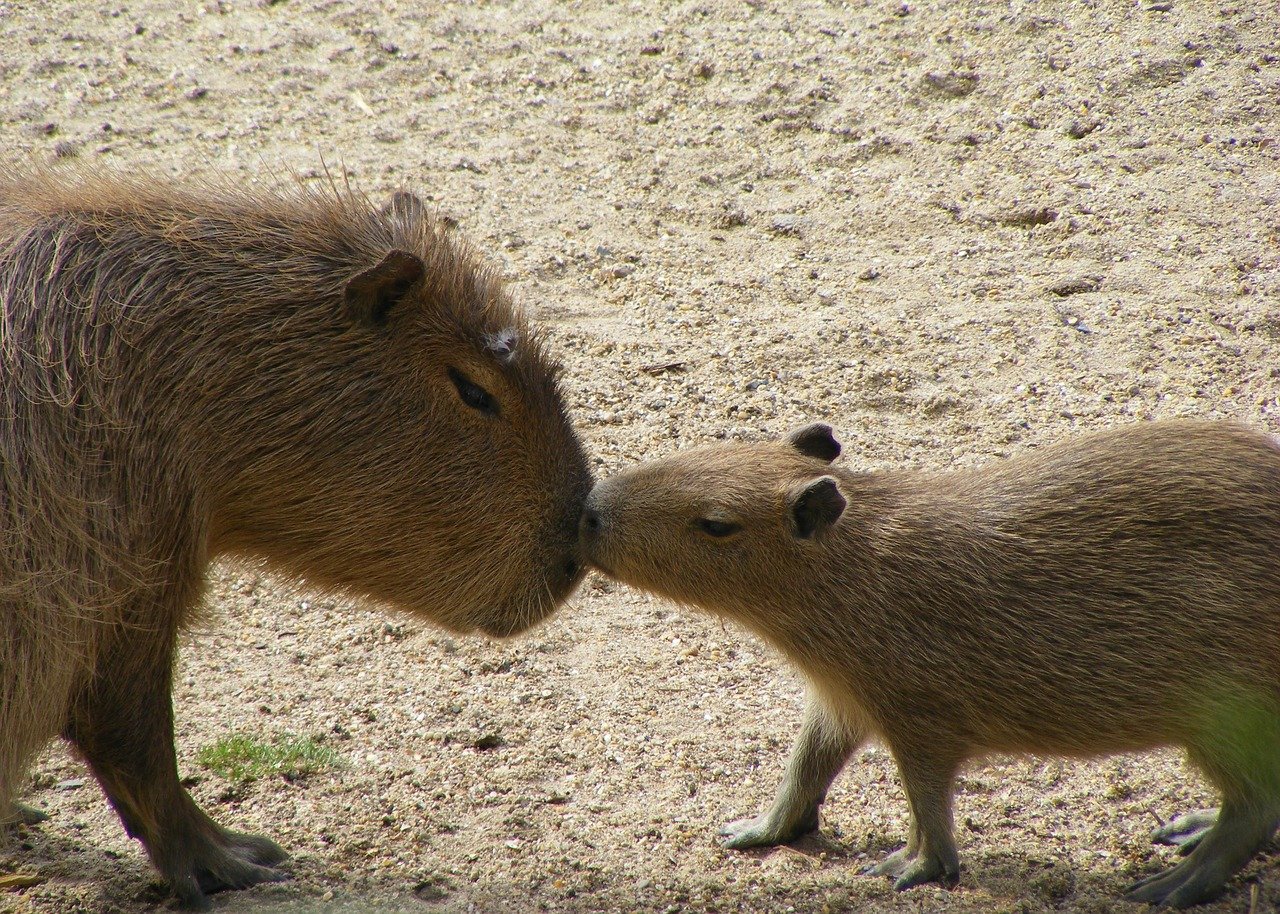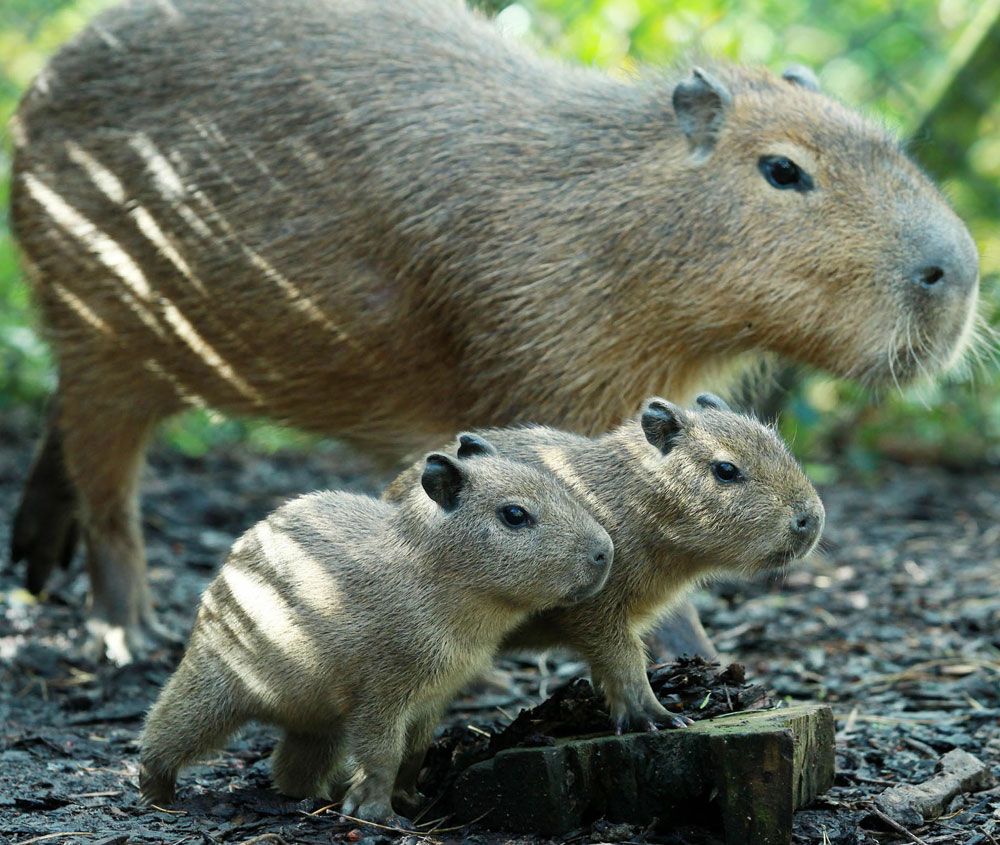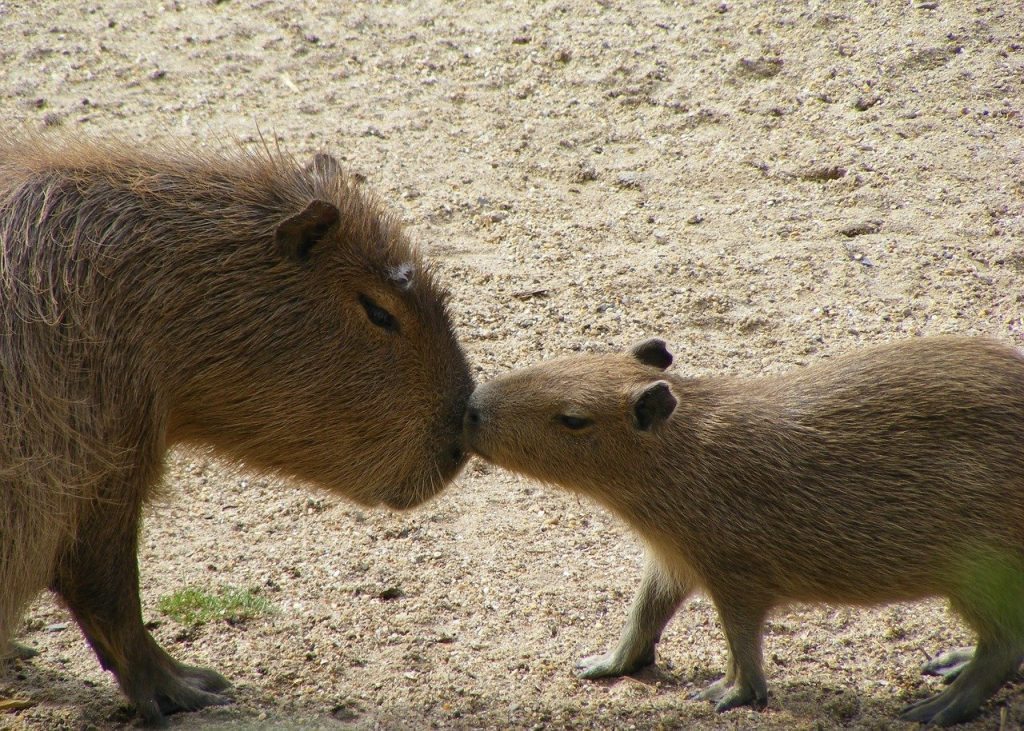
Introduction
The capybara is the largest rodent in the world and is native to South America. These adorable creatures are known for their friendly and social nature. In this article, we will explore the beautiful bond between a mama capybara and her baby.

The Mama Capybara
The mama capybara is a remarkable creature. She is highly protective of her young ones and ensures their safety at all times. These gentle giants have a strong maternal instinct and provide excellent care for their babies.

The Baby Capybara
The baby capybara, also known as a pup, is incredibly cute and cuddly. They are born fully furred and with their eyes open, ready to explore the world with their mama. These little ones are full of energy and curiosity.

Mama's Care
The mama capybara provides exceptional care for her babies. She nurses them until they are old enough to eat solid food and protects them from any potential threats. Mama capybaras are attentive and affectionate, often seen grooming and cuddling their young ones.

Bonding Time
The bond between a mama capybara and her baby is truly heartwarming. They spend a lot of time together, playing, swimming, and even sleeping side by side. This close relationship helps the babies learn essential social skills and builds a strong foundation for their future interactions.

Communication
Mama capybaras communicate with their babies through various vocalizations and body language. They make distinctive sounds to warn their young ones of danger or to express affection. These vocal exchanges and physical cues strengthen their bond and understanding.

Teaching Life Skills
Mama capybaras play a crucial role in teaching their babies essential life skills. They guide them on foraging, swimming, and avoiding potential threats. The little ones closely observe their mama's behavior and imitate her actions, learning valuable survival techniques.

Playtime and Exploration
Baby capybaras are naturally curious and love to explore their surroundings. Mama capybaras encourage this behavior by taking them on adventurous trips, introducing them to different habitats, and teaching them about various plants and foods they can consume.
Growing Independence
As baby capybaras grow, they gradually become more independent, yet their mama's presence remains vital. Mama capybaras allow their babies to roam freely but keep a watchful eye to ensure their safety. This gradual transition prepares the little ones for life on their own.

Other Capybara Family Members
Capybara families often consist of more than just the mama and baby. They live in social groups known as herds, which include males, females, and their offspring. The extended family members provide additional support and protection for the babies.

Endearing Capybara Habits
Capybaras have several endearing habits that make them even more lovable. They are known to groom each other, often sitting in groups and gently nibbling on the fur of their family members. These grooming sessions help strengthen social bonds within the herd.

Mama's Protection against Predators
Mama capybaras are fiercely protective of their babies and take swift action to defend them against potential predators. They use their sharp teeth and strong bite to deter threats. Additionally, their large size and ability to run swiftly in the water make them formidable opponents.

Conclusion
The bond between a mama capybara and her baby is truly special. These remarkable creatures provide unconditional love, care, and protection to their young ones. The mama's guidance and affection shape the baby capybara's life and prepare them for a world full of adventures. Witnessing the mama and baby capybara together is a heartwarming experience that reminds us of the beauty of parental love in the animal kingdom.